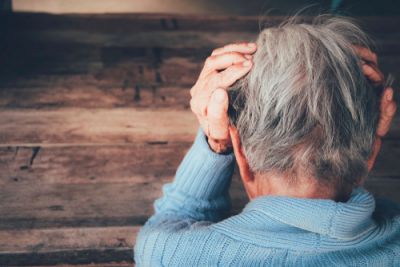 According to the CDC, elder abuse is a “significant public health problem” that affects at least 10% of adults over the age of 60. Some believe that this figure is an underestimate of the problem because many seniors do not report it out of fear or inability. October is Domestic Violence Awareness Month. Let’s look at elder abuse and what to do if you suspect it.
According to the CDC, elder abuse is a “significant public health problem” that affects at least 10% of adults over the age of 60. Some believe that this figure is an underestimate of the problem because many seniors do not report it out of fear or inability. October is Domestic Violence Awareness Month. Let’s look at elder abuse and what to do if you suspect it.
Types of Elder Abuse
Elder abuse generally occurs in a relationship between a caregiver and the elder. Usually, there is an expectation of trust in which one person is supposed to care for the other person’s needs. Sadly, elder abuse is very common between family members. Here are some forms it can take:
- Physical abuse is when physical force is used to harm someone. Violent acts such as burning, pinching, shoving, or shaking comprise just a few forms of physical abuse. You might notice bruises or other signs of harm.
- Emotional abuse consists of behaviors that inflict mental pain or fear. It can be verbal or nonverbal, such as isolation from family and friends, threats, or insults. Elders who become withdrawn or extremely agitated may be suffering from emotional abuse.
- Sexual abuse is sexual interaction that is not consensual. When a person is not competent to give consent, that is sexual abuse. Signs of sexual abuse include unexplained STDs or vaginal bleeding.
- Neglect is failure to meet the needs of the elder adult. Neglect can be withholding water or food, not taking someone to the doctor, or providing an unsafe environment. You may notice untreated health problems or unsanitary living conditions.
- Financial exploitation is when a caregiver illegally or improperly uses the finances of an elder adult. Theft of money or possessions is a common type of financial abuse, but it can also include not giving the senior access to their financial resources. Financial abuse takes many forms. Signs include changes in a will or other financial documents, unpaid bills, or a caregiver who suddenly has large amounts of cash.
Elders may often say something that indicates abuse, but they may not. If an elder discloses something that gives you concern, you may need to report your suspicions and let the authorities investigate. Some seniors don’t have the mental capacity to disclose it, which makes it even harder to know what is really going on. The symptoms of elder abuse can also be attributed to other problems associated with aging.
Reporting Elder Abuse
Elder abuse is either an intentional act or a failure to act by a caregiver. In most states, professionals on the front line are mandated reporters who must report suspicions of abuse. In eight states, anyone who suspects mistreatment is required to report that suspicion to the authorities. Whether you are required by law to report suspected abuse or not, it’s important to keep vulnerable adults safe from harm.
You aren’t required to prove that abuse is happening, but you should be prepared to provide information about the situation. The professionals will investigate and determine whether abuse is occurring, so just give the details about why you are concerned. You may be asked some questions to find out more about the situation. Your report is confidential. The professionals who take your report are prohibited from releasing the information to the abuser or victim.
Need to Report Elder Abuse?
If you notice the warning signs of abuse, use The Eldercare Locator, a public service provided by the U.S. Administration on Aging, to find services for older adults. Visit the website and enter your location to find local agencies that protect seniors and vulnerable adults. Elder abuse is a serious issue that often needs intervention from someone outside the family to find solutions.



